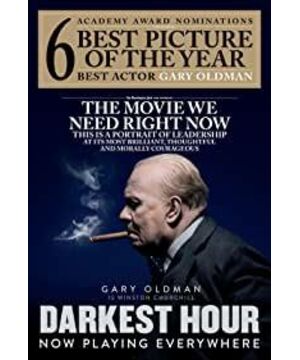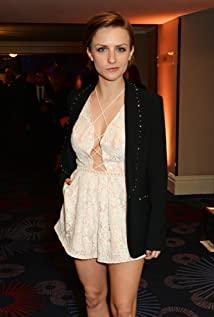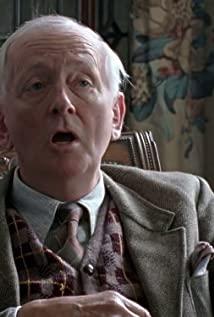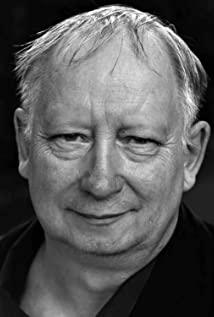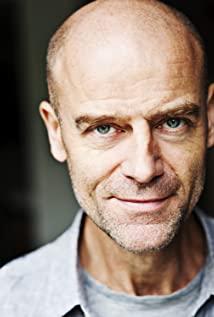sequence:
This is a movie that I personally would give 3.5, but I almost gave it 3 stars because of the gap with my psychological expectations, but finally gave it 4 stars. In addition to Gary Oldman's perfect performance, the extra points are the film's perspective on depicting war. Whether it is "Dunkirk" or this "Darkest Hour", they are very restrained and do not deliberately incite hatred in the film. There are no gory scenes. The war perspective of the entire film has changed from an accusation of one party against the other to an experience and test of the protagonist's heart, highlighting the truth, goodness and beauty of a human being that will not be suppressed by evil. This change in the context of war movies is really worth learning from our country. Compared with the most popular war movies in our country this year, "Dunkirk" and "Darkest Hour" are more advanced in context, and more worthy of respect and respect. respected.
Next, I will describe my feelings about this film from the keywords mentioned in the title, and try to do some rational analysis before throwing out subjective opinions in each subsection. Humanistic reflections related to World War II will not appear in this article.
"Prepare" - the theme of the film
If I had to sum up the film in one word, it would be this seemingly ordinary but in fact full of weight - "preparation".
From a macro perspective, the film describes the darkest moment when Britain was about to be dragged into the war by Germany, and it was also the last "preparation" time left for the British - it was war and preparation to make this life-and-death decision. PS: And in the first scene of Churchill at the beginning of the film, when he was arguing with the female secretary about typing, the repeated argument was also: "Prepare for war!"
From Churchill's personal point of view, the film is run through several of Churchill's speeches, and the emphasis in the film is on the "preparation" of the speech. During the first speech, I repeatedly jumped back to the various running-ins with the female secretary in the preparation stage. In the second speech, I emphasized that because of the guilty conscience and lack of preparation for telling lies, I repeatedly revised the draft before the speech, so that the Those who prevent him from "preparing" get angry. The first two preparations were so frustrating and laborious, but they did not get good results. On the contrary, it was the third time, and the speech with the shortest actual "preparation" time, but it was the most successful because of the firm belief.
This mutual reflection of macro and personal preparations actually implicitly expresses the film's point of view on this history: " The belief of never surrendering is the most perfect preparation that trumps everything else. "
"5" - 5 perspectives in the film
①Churchill
Churchill, as the soul of the whole story, is the first point of view of the film. The screenwriter arranged for him a character arc consisting of "impatient trying to prove himself" - "self-doubt" - "re-confidence", which is also a very classic and Standard character arc. The protagonist's mental journey can be compared with that of "Booming Drummer". ——In the beginning, getting the prime minister's position corresponds to being spotted by the mentor in "Boomman", and the mid-term suspicion corresponds to being dropped out of school in "Boomman", and then the conversation with the king and the female secretary made him face the challenge again. Corresponding to "Boomman" " in the conversation with the instructor at the bar.
The arc of the character must be able to arouse the audience's empathy to be successful . From this point of view, the portrayal of Churchill's character is still a long way from success (of course, the performance is nothing to say). A very good proof, I feel the anxiety and nervousness of the teacher when the teacher silently recites the speech with the king in "The King's Speech", which shows that the success or failure of the protagonist has firmly grasped my heart at this time. But in this film, the female secretary followed Churchill to read the speech silently several times. To be honest, I didn't feel much...
Whether to react to a real historical moment or to react to a character, I believe this is the most troublesome problem for the screenwriter of this film. Although "The King's Speech" also uses the imminent war as the background, the entire film focuses on the process of how the king overcomes his own shortcomings with the help of the teacher. The war is only the background, so there is enough time for the shots. Characterization, so that the audience can empathize in the viewing process. And if you want to truly reflect a historical moment, many characters are bound to be involved. For example, "Dunkirk" is a group drama with the joint efforts of all parties.
From this, it can be seen that the writer's attempt to emphasize Churchill's personal arc in this film and the title "Darkest Hour" implied a very dangerous tightrope-like contradiction from the beginning. If you try to depict this moment, it will inevitably result in less time for a single character to express his own characteristics and transformations, and the progress of the film must take more account of the objective timeline, rather than the subjective emotions of the characters as clues Jump and cut between different time points (it makes it more difficult to portray a single character.)
So in the end, the finished film we saw was actually the result of the screenwriter's back-and-forth between "Churchill" and "Darkest Hour". Personally, I don't think this answer sheet is perfect.
② female secretary
You will find that in the preparation of several speeches in the film, the one who interacts with Churchill is a female secretary, and the role of this role is even more than that of the Prime Minister's wife. This first reminds me of "Copying Beethoven". The advantage of this perspective is that the audience's understanding of the protagonist is synchronized with the observer placed in the film. The three acts reach a climax of mutual understanding. It's a well-thought-out setup.
But there is a very important problem in the film, like "Copying Beethoven", if you want to use this perspective, you have to give her enough importance (the second protagonist?), length and plot to be effective, At least as in "The King's Speech," adding a teacher to audition for the role of Shakespeare and failing to give us a sense of the character's inner desires. However, the female secretary in this film did not give us an understanding of her except for her work level through her brother's photos until the middle and late stages, which is obviously not enough.
③ wife
The best thing about the wife's perspective is that it adds an emotional value to the film that ordinary viewers can recognize, and allows us to empathize with the characters and events in the film. The best setting for the role of the wife that can be thought of with similar themes is "The King's Speech", and it is precisely when this film is used as a comparison that people feel how well "The King's Speech" is completed. Through the existence of his wife, the great man in the film is no longer just a great man, but an ordinary "husband". Especially in "The King's Speech", the king's speech is no longer an abstract ordinary person who can take responsibility for the country. Emotions that are not easy to understand, but emotions that can better empathize with being a husband that a wife can depend on.
In general, the portrayal of the Prime Minister's wife can only be said to be quite satisfactory, with limited help in shaping Churchill, and there are several rival scenes that should be there. It's all expressed, but the truth is not as good as the uneasy eyes of the wife in "The King's Speech" and the few silent snuggles that moved me.
Since "The English Patient", it has been my goddess's eternal "K", and the result is such a scene, sigh.
④ Colleague/King
The screenwriter is very honest and down-to-earth and screwed a screw on every point that needs to be fixed, but it feels like nothing has been done. The King, Chamberlain, and the Viscount of Halifax, the three stood in the positions of Churchill's different types of opponents. The role of the king was opposed in the early stage, and then automatically changed his position at the national height in the middle and late stage. Chamberlain is influenced by the protagonist's behavior at the climax of the film at the end of the film, highlighting the achievements of the protagonist in the climax scene. And Harry was not influenced until the end and became the big villain. Pretty standard setup, and one is arranged in every location.
Very stylized, flawless, and not outstanding. Although there is an emphasis on the justice of the Lord and the faction, so that the audience can understand it, it is far from making the characters three-dimensional. If you strengthen an opposite perspective like "The Biography of Mozart" Maybe also brilliant.
⑤ Time
The impact of the perspective of "time" on this film is too great, perhaps more than points ②, ③, and ④ above combined! It is very visually represented in the film as a flipping calendar that appears on the screen at intervals. Due to this emphasis, the film is actually limited, and can only use a linear narrative (except for the special purpose interrupted by the first speech at the beginning), and the narrative space of the film is greatly limited. Of course, this is the case. It makes sense to do it naturally. The title of the film uses "HOUR" to emphasize the sense of urgency that is constantly approaching. I watched a video of "The Shining" before and mentioned that this setting of the continuous tightening of the timeline will add a sense of urgency to the film. I feel that this must be very important for this movie with a large amount of space supported by long monologues, and it is estimated that this is the reason why the director is reluctant to give up.
Therefore, in general, the film shows 5 viewpoints, which correspond to various classic modes, but the result is that each viewpoint drags each other back, so that none of the viewpoints can be deeply portrayed.
"4" - 4 speeches in the film.
In fact, this "4" already contains my subjective emotions. Originally, if it was 3 speeches, it would be very perfect, but now the whole third act is a conversation between a subway and the masses (in fact, strictly speaking, it can also be regarded as a speech), And an incitement to the Foreign Cabinet (that's the speech!) and finally one of the most famous speeches in history.
The speech of about 25 minutes, the speech of about 40 minutes in the middle, and the final speech dealt with "strong desire to prove yourself" in the early stage, "lost yourself" in the middle stage and "find yourself and believe in yourself" in the later stage, and all involve and women. The preparation before the secretary's speech is very beautiful.
But in the end, there was one more speech abruptly. This speech had nothing to do with the female secretary, which directly led to the failure of the symbols that the screenwriter had worked so hard to insert into the film. The screenwriter is not stupid, so why add this scene? So it is a game of effect. The third act of the whole film will form the final climax and the final ending will fall at the moment of leaving after the parliamentary speech, intending to dispel all the darkness and keep the intruders out of the door, it is impossible to rely on The later time points and event points are used to find available climax points (you see, it is another self-limitation caused by framing the time point). As a result, the only option is to add an incitement to the foreign cabinet to prop up the third act. However, I personally feel that the effect is not good. Not only did it not play a good role in paving the way for the final speech, but it weakened the strength of the final speech.
Making historical dramas is not easy, it is subject to historical facts, and the playwrights themselves are imposing various restrictions on themselves, and it is inevitable to walk on thin ice.
"3" - the precision of the script structure of the film
"3" is a small homework that you let yourself do. Of course, it is not that only this movie has three acts, but that the plot setting of this movie has the precision of the Hollywood model. Thanks to the Xiaomi Mi Band, I can roughly see the time of each plot point without lighting the screen to affect other people's viewing. The record is as follows:
10 minutes: Preliminary foreshadowing, Churchill's first scene is completed, and a hook that is attractive enough to watch is established.
25 minutes: Formal Acceptance of Confession: Acknowledging the Challenge
35-40 minutes: The protagonist's first anti-character action, the character begins to go beyond his original trajectory - lying to the people.
60 minutes (movie 1/2): The meeting, the climax of war or alliance, decides to recruit civilian ships.
85 minutes (near the end of Act 2): The emotional nadir and the film's highest stress point. The real "Darkest Hour"
85-95 minutes: Picking up, re-emerging the courage to face the challenge through exchanges with the female secretary, the king, etc. to enter the third act.
"2" - two directions that can make the work better
Let's talk about this last.
"1" - A perfect performance! A perfect on-screen presence
The film's most satisfying and most people applauded is that Gary Oldman masterful performances contribution from the "LEON" fell in love with him, really attractive, and to some extent "LEON" success in fact, the casting is successful, "LEON" in Gary Oldman 's character is actually not very solid, is setting a standard villain, far from clown like to occupy the high ground on the role. But he just made this role a classic villain through his own performance. Also in this film, Gary Oldman used his voice and body to make us completely forget his existence as an actor, but resurrected a Churchill, a great performance, a great performance.
"0 that never came" and "2"
After watching this film, I felt a little disappointed. I always felt that when I saw the climax, although I was shocked by the shout of "NEVER" and moved by the waving white handkerchief, I always felt that something was missing. It's like waiting for the rocket to lift off, waiting for the countdown: "Prepare! 5! 4! 3! 2! 1!" After that, I couldn't wait for "0!" "0.9!, 0.8!..." At first, I thought that there was a problem with the ending setting, but after thinking about it carefully, I realized that it was actually determined by the structure of the film.
And this involves two ways that I think might make this film even better. Of course, this is a very personal opinion, light spray:
1. Focus more on Churchill. After all, the plot point I and plot point II in the film, which are important points that affect the direction of the story, are designed to change in Churchill's heart. This way you don't care too much about other perspectives, and it's better to drop or at least weaken the role of the female secretary. Go straight to the first scene, don't use the female secretary to introduce "Churchill", including the important work scene of Churchill in the wartime cabinet, which is also introduced by the female secretary. It is not the structure of "The Destruction of the Empire". Cut directly to Churchill and his subjective feelings. At the same time, if the narrative focuses on Churchill, it is best to give up the limitation of the time line. I think it is actually the beginning of the lied speech in the middle, and then through Churchill's memory of getting the prime minister's seat and the speech after the prime minister's position. , this interlude mode may be better.
2. Choose one of the female secretary, the prime minister's wife, the king and the opponent, and complete the construction as the second protagonist. Use "Copy Beethoven" or "The King's Speech" as a supplementary line based on the changes in the relationship between the two people instead of simply following Churchill's inner changes as the main line. This requires more drama in the construction of the second protagonist.
ps: Why didn't the last speech play cut to different people like "The King's Speech"? Is it to ensure the integrity of the speech? The image of the whole film people is gathered on the female secretary? In fact, the presence of the public has not been very sufficient, even if there is a subway scene, it cannot make up for it.
View more about Darkest Hour reviews


